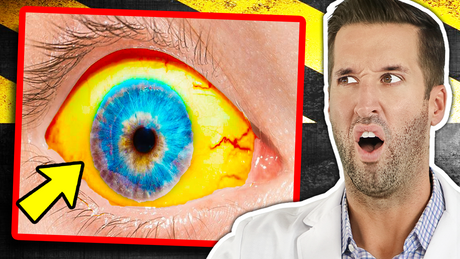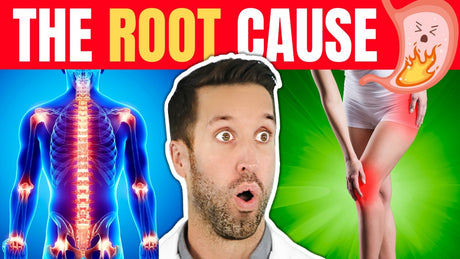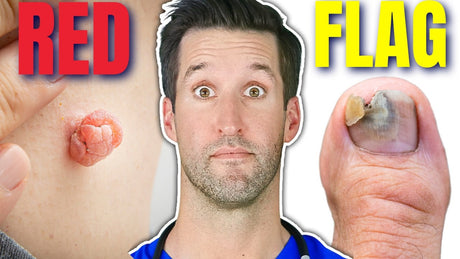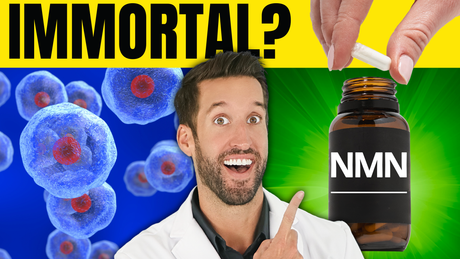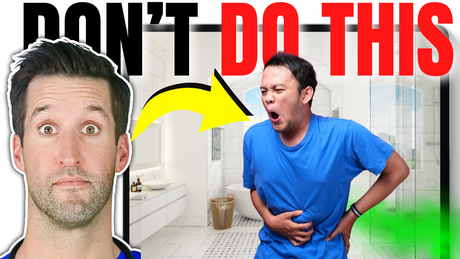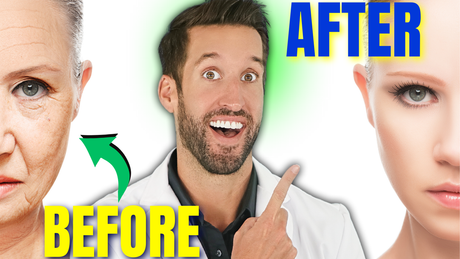Are you tossing and turning at night, struggling to find a natural way to fall asleep and stay asleep? You're not alone. Millions of people face sleep challenges daily, and poor sleep can impact everything from your mood to your immune system. Fortunately, there are natural sleep aids that can help you achieve restful, uninterrupted sleep. Let's dive into the eight best natural sleep aids for adults that are backed by science and can help you wake up feeling refreshed and energized.
1. Magnesium: The Sleep Mineral
Magnesium is a vital mineral that supports over 300 enzymatic reactions in the body, including those that regulate muscle and nerve function. It's particularly effective at calming the nervous system, making it easier for you to drift off. A study published in the Journal of Research in Medical Sciences found that magnesium supplementation improved sleep quality in elderly individuals with insomnia . Another study noted that higher dietary magnesium intake was associated with a lower likelihood of experiencing sleep disorders like insomnia .
If you're looking for the best magnesium supplement for sleep, consider Magnesium Glycinate for its high bioavailability and calming effects. It might be the key to better sleep.
2. Chamomile Tea: A Time-Tested Remedy
Chamomile tea has been used for centuries as a natural remedy to promote relaxation and sleep. The secret lies in an antioxidant called apigenin, which binds to specific receptors in your brain, encouraging relaxation. Research published in the Journal of Advanced Nursing showed that chamomile tea improved sleep quality in postpartum women . Another study in Geriatrics & Gerontology International found significant sleep improvements in elderly participants who drank chamomile tea .
For a soothing bedtime routine, steep a cup of chamomile tea about 30 minutes before bed.
3. L-Theanine: The Relaxation Amino Acid
L-theanine, an amino acid found in green tea, is known for promoting relaxation without causing drowsiness. It increases the production of calming neurotransmitters like GABA, dopamine, and serotonin. A study in Biological Psychology found that L-theanine supplementation led to significant improvements in sleep quality and stress reduction .
Consider incorporating an L-theanine supplement into your nightly routine to ease your mind and prepare for sleep.
4. Lavender: Aromatherapy for Better Sleep
Lavender is more than just a pleasant scent—it's a powerful sleep aid. The soothing aroma of lavender has been shown to reduce anxiety and improve sleep quality. A study published in the Journal of Complementary and Alternative Medicine found that lavender oil specifically improved sleep quality and duration in college students with sleep problems .
Try adding a few drops of lavender essential oil to your pillow or using a diffuser before bed to help you relax.
5. Melatonin: Regulating Your Sleep-Wake Cycle
Melatonin is a hormone that your body naturally produces in response to darkness, helping to regulate your sleep-wake cycle. Supplementing with melatonin can be particularly helpful for sleep changes like jet lag, shift work, or general sleep difficulties. Research in the Journal of Clinical Sleep Medicine found that melatonin supplementation was effective in reducing the time it takes to fall asleep and increasing sleep duration .
While melatonin can be beneficial, it's essential to use it correctly. Start with a low dose and consult with your healthcare provider to avoid any potential side effects.
6. Valerian Root: Nature’s Sedative
Valerian root has been used for centuries to treat sleep disturbances and anxiety. It works by increasing levels of GABA in the brain, which helps to calm the nervous system. A study in the American Journal of Medicine found that valerian root extract improved sleep quality in individuals with insomnia .
If you’re looking for a natural way to ease into sleep, valerian root might be worth a try.
7. Do Not Disturb by Life Happns: A Natural Sleep Supplement
For a comprehensive sleep solution, consider Do Not Disturb by Life Happns, a natural sleep aid that combines several of the ingredients mentioned above. This supplement is specifically formulated with bioavailable forms of magnesium, passionflower, L-theanine, and Evodia fruit extract to promote restful and restorative sleep. If you’ve been struggling with sleep, this could be the solution you’ve been looking for.
8. Evodia: A Lesser-Known Sleep Aid
Evodia is an herbal ingredient known in traditional Chinese medicine for its ability to calm the mind and reduce nervous tension, aiding in sleep. Some studies suggest that Evodia may even have a sedative effect, helping to reduce the time it takes to fall asleep and possibly improving sleep quality .
Incorporating Evodia into your nightly routine might be the key to a more well-rested tomorrow.
Bonus Tip: Limit Blue Light Exposure Before Bed
Blue light exposure from screens can interfere with your body’s production of melatonin, making it harder to fall asleep. A study published in PLOS ONE found that limiting blue light exposure in the evening significantly improved sleep quality . Try using blue light filters on your devices or avoiding screens for at least an hour before bed.
Conclusion
There you have it—eight natural ways to improve your sleep and wake up feeling refreshed. Whether you're interested in magnesium, chamomile tea, or a comprehensive sleep supplement like Do Not Disturb, these natural sleep aids are backed by science and can help you get the restful sleep you need.
Remember, before using any of these natural ingredients, consult with your healthcare provider to ensure they won’t interact with any medications or health conditions you may have.
---
References
- Abbasi, B., Kimiagar, M., Sadeghniiat-Haghighi, K., Shirazi, M. M., Hedayati, M., & Akhondzadeh, S. (2012). The Effect of Magnesium Supplementation on Primary Insomnia in Elderly: A Double-Blind Placebo-Controlled Clinical Trial. Journal of Research in Medical Sciences.
- Oh, Y. H., Kim, S. Y., Lee, M. Y., & Jo, S. Y. (2019). Magnesium intake and sleep disorder symptoms: Findings from the National Health and Nutrition Examination Survey 2005–2010. Nutrients.
- Zick, S. M., Wright, B. D., Sen, A., & Arnedt, J. T. (2011). Preliminary Examination of the Efficacy and Safety of a Botanical Medicine (Valerian) for Insomnia in Postmenopausal Women: A Randomized Controlled Trial. Menopause.
- Zick, S. M., & Wright, B. D. (2017). Effects of chamomile tea consumption on sleep quality among elderly people: A pilot study. Geriatrics & Gerontology International.
- Hidese, S., Ogawa, S., Ota, M., Ishida, I., Yasukawa, Z., Nozaki, H., ... & Kunugi, H. (2019). Effects of L-theanine administration on stress-related symptoms and cognitive functions in healthy adults: A randomized controlled trial. Biological Psychology.
- Lillehei, A. S., Halcon, L. L., Savik, K., & Reis, R. (2015). Effect of Inhaled Lavender and Sleep Hygiene on Self-Reported Sleep Issues: A Randomized Controlled Trial. The Journal of Alternative and Complementary Medicine.
- Ferracioli-Oda, E., Qawasmi, A., & Bloch, M. H. (2013). Meta-Analysis: Melatonin for the Treatment of Primary Sleep Disorders. Journal of Clinical Sleep Medicine.
- Bent, S., Padula, A., Moore, D., Patterson, M., & Mehling, W. (2006). Valerian for sleep: A systematic review and meta-analysis. American Journal of Medicine.
All information on the Life Happns website is for informational purposes only, and is not intended to be used for medical advice, diagnosis, or treatment. Always seek the advice of your physician or other qualified health provider with any questions you may have regarding a medical condition or before starting any new supplement or health regimen.


